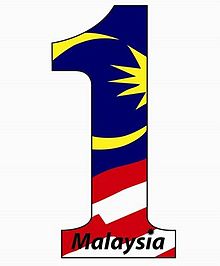Malaysia stands out in the global community for its multi-religious, multi-cultural and multi-ethnic character. Very few countries share the same level of diversity and ethnic harmony.
All our communities coexist peacefully, with mosques, churches, and temples standing side by side. The country has accepted diversity as a source of greater unity for several decades, and Prime Minister Datuk Seri Najib Razak has established “1Malaysia” as official policy.
This week, Malaysia played host to the Global Movement of Moderates conference in KL, attended by 450 delegates from over 70 countries who called for an end to extremism around the world.
Najib inaugurated the conference and told the delegates, “The real divide is not between Muslims and non-Muslims or between the developed and developing worlds, it is between moderates and extremists.”
He held up Malaysia as an example of moderation, with its different ethnic groups coexisting peacefully.
“We have many ethnic groups and religions, but we strive to be a harmonious and united nation predicated on the values of moderation,” Najib said.
Deputy Prime Minister Tan Sri Muhyiddin Yassin agreed, “Our success as a nation depends on the willingness of the moderates, from all religions and cultures, to set aside their differences and work for a common goal in perpetuating peace, harmony and prosperity.”
Muhyiddin said the root causes of extremism were economic alienation, political exclusion and social deprivation, which often led to hatred and enmity between people of different religions and cultures.
“We need to replace economic alienation with equitable distribution of wealth, end political exclusion by promoting political inclusiveness, eliminate social deprivation by upholding social justice and have respect for human dignity,” he said.
The deputy prime minister said the Malaysian government promoted moderation by actively involving civil society in educating people about the values of peaceful coexistence.
This was on display at the festivities last Sunday to celebrate the Hindu festival Pongal, which were attended by MCA president Datuk Seri Dr Chua Soi Lek.
Chua said that celebrating all the religious festivals in Malaysia helps bringing the different races together.
“Celebrating such events do not erode our identity. It makes us more Malaysian in our outlook and allows us to have a better understanding among the races. The stability that comes from racial harmony has helped develop our country,” he said.
Chua pointed out that Malaysians should not assume that such unity was “automatic”. He said it was largely due to the decades of effort by BN to encourage moderation and tolerance.
In contrast, de-facto opposition leader Datuk Seri Anwar Ibrahim said he would scrap this system that has maintained ethnic harmony since the 1969 race riots.
If voted to power, he said Pakatan Rakyat would end the priority given to the Malay majority in employment, education and business, which he claimed is unfair to the Chinese and Indian communities.
Yet this plan would be counterproductive, as the common goal of all ethnicities is the development of the country. By destabilising ethnic harmony at this juncture, Anwar would hit growth.
With Malaysia poised to progress ahead as a more democratic and advanced society by 2020, it is important that no major upheaval is done to a system that has worked so well for decades.

